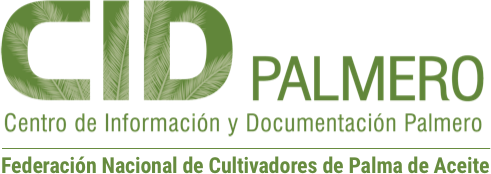| dc.creator | Quintero, Miguel W. | |
| dc.creator | Gómez D., José R. | |
| dc.creator | Boyacá, Alejandro | |
| dc.date | 2007-01-01 | |
| dc.date.accessioned | 2020-07-25T11:19:19Z | |
| dc.date.available | 2020-07-25T11:19:19Z | |
| dc.identifier | https://publicaciones.fedepalma.org/index.php/palmas/article/view/1288 | |
| dc.identifier.uri | http://repositorio.fedepalma.org/handle/123456789/139915 | |
| dc.description | The use of polyols derived from palm oil for the production of polyurethane foams is a new development opportunity for the Colombian oleo-chemical industry. In order to assess this opportunity, it is necessary to have a basic knowledge of the polyurethane market, of its raw materials (polyols and isocyanates derived from petroleum), of the physical and chemical aspects that determine the end quality of polyurethane foam and the interaction strategies of the main players in the chain of production. By considering the progress obtained by the chemical industry with similar technologies and the expected role of the Colombian palm oil industry in the future allow to identify the main challenges that would make the development of polyols feasible: the integration of the different players, from palm growers to foam manufacturers, and the technical development of products of consistent quality that would take into account the variations associated with oil. | en-US |
| dc.description | La utilización de polioles derivados del aceite de palma para la producción de espumas de poliuretano representa una oportunidad más para el desarrollo de la industria oleoquímica Colombiana. La valoración de esta oportunidad requiere de un conocimiento básico del mercado del poliuretano, de sus materias primas (polioles e isocianatos derivados del petróleo), de los aspectos físicos y químicos que determinan la calidad final de la espuma de poliuretano y de la estrategia de interacción entre los principales jugadores en la cadena de producción. La consideración de los avances de la industria química en tecnologías similares y la posición del aceite de palma Colombiano en un futuro permiten identificar los principales retos para que el desarrollo de polioles sea factible: la integración de los diferentes actores, desde el cultivo del aceite hasta la manufactura de espuma, y el desarrollo tecnológico de productos de consistente calidad que consideren la variabilidad asociada al aceite. | es-ES |
| dc.format | application/pdf | |
| dc.language | spa | |
| dc.publisher | Fedepalma | es-ES |
| dc.relation | https://publicaciones.fedepalma.org/index.php/palmas/article/view/1288/1288 | |
| dc.rights | Derechos de autor 2017 Revista Palmas | es-ES |
| dc.rights | https://creativecommons.org/licenses/by-nc-nd/4.0 | es-ES |
| dc.source | Revista Palmas; Vol. 28 Núm. especial, (2007); 35-42 | es-ES |
| dc.source | 0121-2923 | |
| dc.subject | aceite de palma | es-ES |
| dc.subject | polímeros | es-ES |
| dc.subject | industria de oleoquímicos | es-ES |
| dc.subject | poliuretano | es-ES |
| dc.subject | modernización Colombia | es-ES |
| dc.title | Polyurethane polymers and the Colombian industry : an opportunity for the palm oil industry | en-US |
| dc.title | Los polímeros de poliuretano y la industria colombiana : una oportunidad para el aceite de palma | es-ES |
| dc.type | info:eu-repo/semantics/article | |
| dc.type | info:eu-repo/semantics/publishedVersion | |


